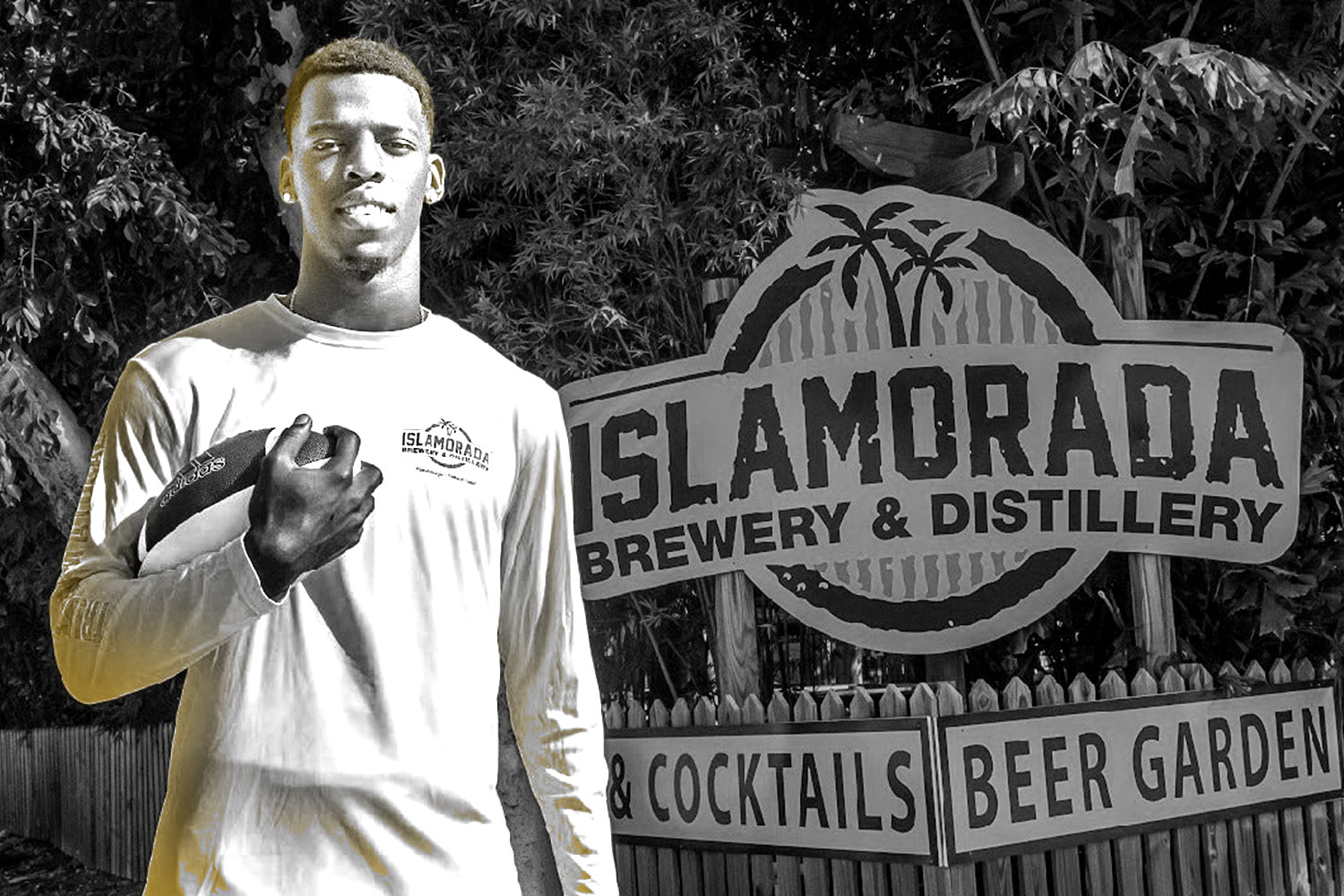In recent years, schools have begun striking deals with companies the NCAA considered “taboo,” like alcohol companies and sports betting operators.
Now, some state NIL laws and school rules allow athletes to do NIL deals with these types of companies, too.
The NCAA tried to stop this, but the Alston ruling made it illegal for the governing body to institute any strict NIL rules — including prohibiting brands in certain categories from participating.
Already, a couple deals have surfaced. FAU quarterback N’Kosi Perry signed with a local brewery called Islamorada Beer Company. MaximBet, a sports betting operator that just set up shop in Colorado, has offered a deal to every 21+ women’s sports athlete in the state.
“We are big supporters of NIL,” Doug Terfehr, VP of Brand and Communications at MaximBet, told FOS. “We do believe it’s been long overdue. We do think the accessibility of all categories that are available for colleges to sell, and be able to have a partner for, should be available to the student-athlete as well.”
Home Run for Everyone?
All parties can benefit from these deals — even if some consider them controversial. “It’s just a matter of everyone playing ball,” sports attorney and New York Law School professor Dan Lust told FOS.
Islamorada’s co-founder and VP of Business Development, Jose Herrera, has long admired Perry. The NIL deal gives Herrera the chance to support Perry financially and hopefully get some press in the community where he sells beer.
Since the current deals are considered the first of their kind, they also provide national publicity, Lust said. The attention from being “first” has given Herrera a chance to show distributors that name recognition for Islamorada extends beyond Florida.
Similarly, MaximBet just launched in Colorado — and the company wanted to make a splash by enlisting an army of local athletes to introduce them to the state. “We really wanted to connect with the community and get their attention,” Terfehr said.
They also can create a potential recruiting advantage for schools that allow athletes to do deals with companies others don’t. “These are billion-dollar industries,” Lust said. “Maybe that makes [a school] that much more attractive to a competitor in the same conference or the same city.”
Responding to the Haters
Not all the publicity is positive, of course. Some critics say college athletes shouldn’t be allowed to associate themselves with “banned” substances and gambling companies — even if they are 21.
Both brands pointed to their emphasis on responsible use of their products and their marketing strategy, however.
Perry is “not a big drinker,” Herrera said. “Yes, we are sponsoring a college athlete. But that college athlete is also promoting … ‘drink responsibly.’ He’s not out there chugging beers.”
And Islamorada’s campaign isn’t targeting college students, Herrera said. They “drink cheap beers,” Herrera said. “We’re a high-end craft … We’re just getting out here for the fans.”
MaximBet structured their partnership so that athletes aren’t “incentivized to get sign-ups,” Terfehr said. Instead, they’re tasked with promoting the lifestyle side of the brand and the events it hosts.
An Uncertain Future
There’s clearly a market in the NIL industry for 21+ companies — even if it isn’t legal for long.
MaximBet has gotten “interest” from athletes in all three divisions, and “compliance teams have been very open to the relationship,” Terfehr said. They’ve also received inquiries from 21+ male athletes in and out of Colorado. Islamorada is working on signing a female athlete.
But there are two remaining hang-ups.
First, the definition of “taboo” isn’t even clearly defined. A wave of athletes have signed up to partner with Barstool, for example — which is partially owned by Penn National Gaming. Some schools have deemed it acceptable, while others said its ties to sports betting disqualify it from partnering with their athletes.
Major companies, like Bud Light and DraftKings, haven’t jumped in yet. Lust said many of them are still in wait-and-see mode, whether they’re considered “taboo” or not. “Big players are waiting to see what federal mandate comes down.”
It’s unclear when Congress might finally pass a law or what might be in it — but officials are still asking to ban these kinds of companies from NIL deals.
Tips? Comments? Reach out to Amanda Christovich at amanda@fos.company or on Twitter.





![[Subscription Customers Only] Jun 15, 2025; Seattle, Washington, USA; Botafogo owner John Textor inside the stadium before the match during a group stage match of the 2025 FIFA Club World Cup at Lumen Field.](https://frontofficesports.com/wp-content/uploads/2026/02/USATSI_26465842_168416386_lowres-scaled.jpg?quality=100&w=1024)
![[Subscription Customers Only] Jul 13, 2025; East Rutherford, New Jersey, USA; Chelsea FC midfielder Cole Palmer (10) celebrates winning the final of the 2025 FIFA Club World Cup at MetLife Stadium](https://frontofficesports.com/wp-content/uploads/2026/02/USATSI_26636703-scaled-e1770932227605.jpg?quality=100&w=1024)










